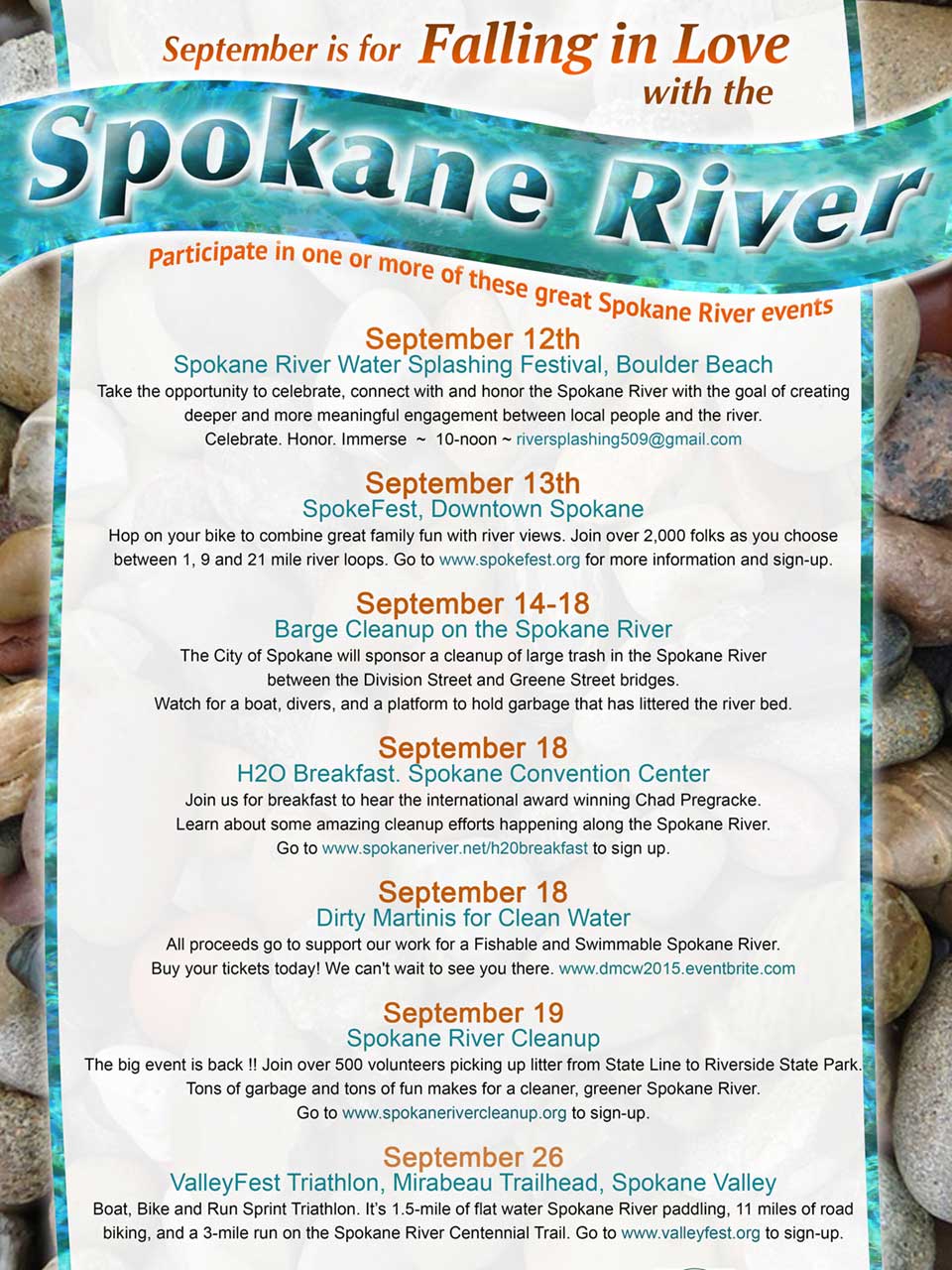
Celebrate the River with us!
Marlene Feist, Utilities Communications Manager, No Phone Number Available
Tuesday, September 1, 2015 at 5:23 p.m.

Around the City, construction is under way that will improve the health of the Spokane River. Big underground tanks will keep overflows from combined sewers from reaching the river, while other work will improve the quality of water at the City's wastewater treatment plant and manage stormwater on site.
While this work is critical, underground infrastructure is often quickly forgotten. So the City of Spokane has collaborated with several partners to provide tangible ways to demonstrate our commitment to improved water quality. We decided to focus on garbage.
“You can't see phosphorus or PCBs, but you can see old tires and shopping carts in the river and the garbage along its shores,” says Gavin Cooley, the City's Chief Financial Officer who helped lead the charge on cleanup plans. “We want to address those cleanup needs, while encouraging our citizens to continue to care for our river into the future.”
The City and its partners – Avista, the Spokane River Forum, The Lands Council, the Spokane Riverkeeper, and Friends of the Falls – will host:
- A “barge” cleanup of larger pieces of garbage between Division and Greene streets the week of September 14. Thanks also to Knight Construction, Associated Underwater Services, and Brown Construction for their help on this project.
- An H2O Breakfast on Friday, Sept. 18, at 7:30 a.m., at the Spokane Convention Center with keynote speaker Chad Pregracke, who is known for his garbage cleanup work on the Mississippi River and was CNN's Hero of the Year in 2013. Register at http://spokaneriver.net/h2o-breakfast/.
- The return of the annual Spokane River Cleanup on Saturday, Sept. 19, at 9 a.m. Sign up to volunteer at http://spokaneriver.net/spokanerivercleanup.
This is just the beginning. September is a month full of ways to “fall in love with the Spokane River.”
A poster with all the events highlighted is attached.
Over the last couple of years, the City embarked on a journey to determine how to improve the health of the Spokane River, while keeping costs affordable for citizens. The plan details $310 million in work to improve water quality, but the most important outcome might be a renewed connection to the river, Cooley says.
In a recent survey, 89 percent of people strongly agreed that we owe it to future generations to protect the Spokane River, and 79 percent strongly agreed that the river is an important part of our local economy.
That's consistent with what we heard when we were talking to our citizens about plans to improve Riverfront Park. They wanted us to turn back to the river, to take advantage of its beauty and power for the benefit of the community, and that's a major theme of the park redevelopment as a result.
“The Spokane River is our greatest natural asset, and as we interact more with the river as a community, the more we will protect it,” says Cooley.
More About...
- Avista
- Chad Pregracke
- Enjoy
- Friends of the Falls
- garbage
- H2O Breakfast
- Lands Council
- Spokane Convention Center
- Spokane River
- Spokane River Cleanup
- Spokane River Forum
- Spokane Riverkeeper

